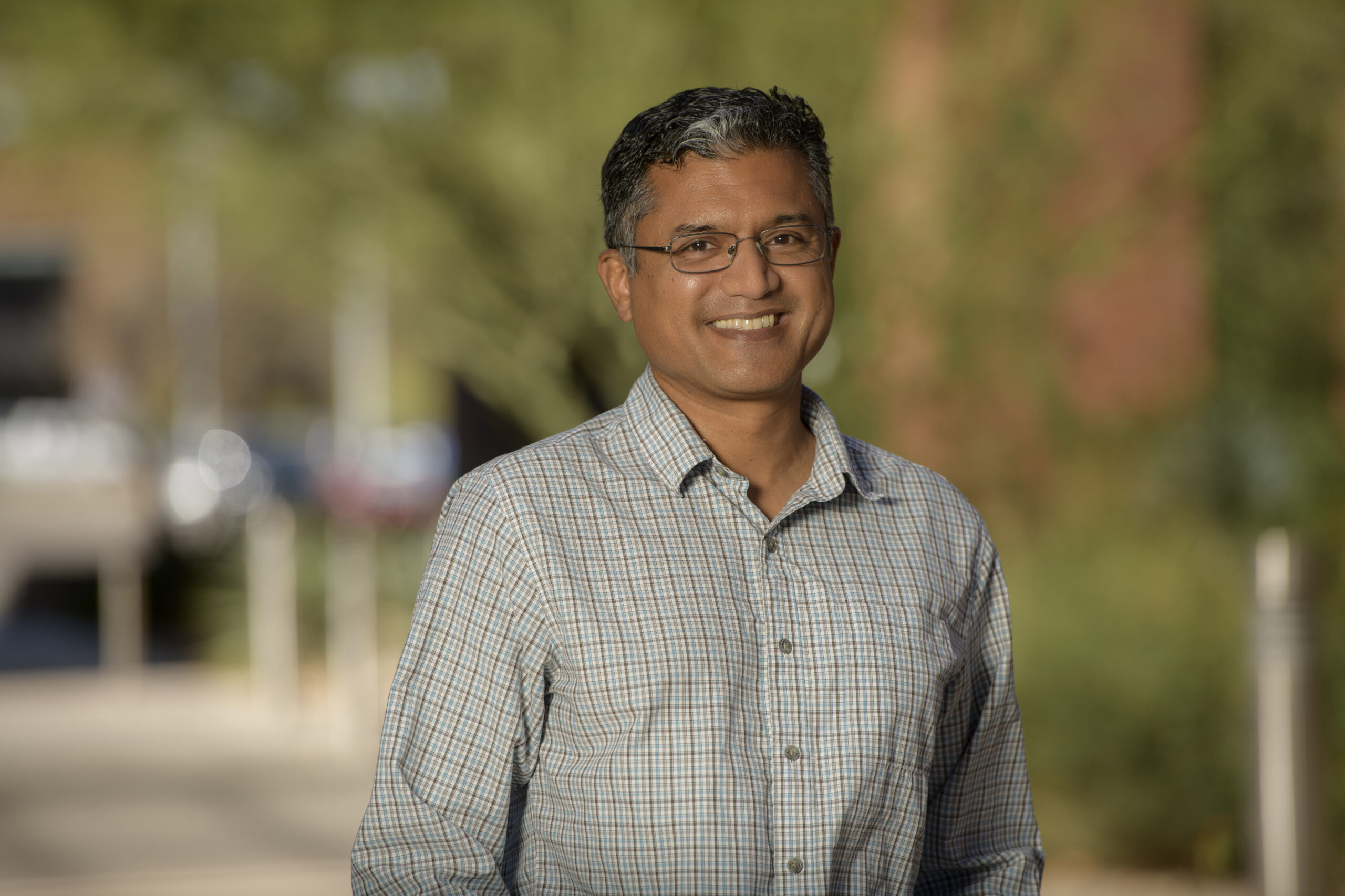As we begin welcoming a new chapter in research and innovation to the Phoenix Bioscience Core (PBC) community, PBC’s Executive Director, Scarlett Spring, sat down with Deepta Bhattacharya, PhD, the new Executive Director of the University of Arizona Health Sciences Center for Advanced Molecular and Immunological Therapies (CAMI). Below you’ll find some key areas covered in their conversation.
From Tucson to Phoenix
Dr. Bhattacharya looks forward to the opportunities Phoenix offers. Dr. Bhattacharya views working in Phoenix as joining a vibrant and rapidly growing bioscience community. He is eager to engage with the innovative spirit and contribute to the transformative work being done. He is particularly excited about leveraging the resources and collaborations available at the PBC to propel CAMI’s research initiatives.
Primary Goals and Vision for CAMI
Dr. Bhattacharya emphasized that CAMI’s short-term goal is to establish a proof of concept for an academic bioscience incubator studio, providing support to promising research ideas. This model involves helping small translational research teams achieve clear milestones within a reasonable timeframe, leading to the development of intellectual property that the University of Arizona can license, ultimately facilitating the creation of new companies. The long-term vision involves creating a sustainable cycle of innovation and commercialization, boosting the number of startups emerging from the university.
Focus Areas and Early Wins
Dr. Bhattacharya intends to cast a wide net, but his initial focus areas are broadly related immunology projects, including mRNA technology and potential partnerships in the Type1 diabetes space. Establishing early wins is crucial for demonstrating the model’s viability and securing long-term investment and support from the university and other stakeholders. Recruitment will start from within by providing space to promising talent from the University of Arizona College of Medicine–Tucson as well as the College of Medicine–Phoenix. But that’s just to get things off and running fast. Dr. Bhattacharya is focused on filling CAMI immediately so there’s life in the space, which makes it more attractive as a place for external bioscience/biotech professionals to test and develop their ideas.
Strategic Positioning and Leadership
Dr. Bhattacharya notes that what sets CAMI apart from other institutions is backing from philanthropists, state, local, and university leadership alongside the willingness to take calculated risks. Dr. Bhattacharya praised Senior Vice President of the University of Arizona Health Sciences, Michael D. Dake, MD, for his leadership, highlighting that strong institutional support is key to the center’s success.
Partnerships and Economic Impact
Dr. Bhattacharya said that clinical-academic partnerships are crucial for advancing bioscience ventures to a phase where they can attract significant investment. CAMI will create local partnerships with sister institutions like ASU and clinical partners such as Banner Health and Phoenix Children’s Hospital to help generate preclinical and clinical data, increasing the likelihood of substantial investment and success for startups.
Challenges and Ecosystem Development
Dr. Bhattacharya sees retention as one of the main challenges. Given that major investors are often concentrated in areas like the Bay Area, Boston, and San Diego, California. There is a strong need to create compelling incentives to keep companies local. This can include things like skilled labor, public-private partnerships, and incubator spaces. He also emphasized the importance of fostering a supportive ecosystem where talent can easily transition between companies, enhancing the region’s appeal to a larger pool of bioscience professionals.
Community Impact and Long-Term Vision
Dr. Bhattacharya sees CAMI’s impact extending beyond immediate scientific and commercial achievements. By creating high-paying jobs and fostering an innovation-driven economy, CAMI aims to transform the local community. Drawing inspiration from successful models like the University of Wisconsin and UPenn, CAMI aspires to not only boost the university’s stature but also significantly contribute to the regional economy.
Personal Insights and Commitment
On a personal note, Dr. Bhattacharya shared his passion for basketball. Although three reconstructive knee surgeries prevent him from playing the game himself anymore, his thoughts often drift to the game, living vicariously through watching his sons or the Phoenix Suns play. Based on our interview, it’s obvious Dr. Bhattacharya is a team player with the court awareness for innovation within the bioscience industry.
Dr. Bhattacharya’s appointment officially begins on July 1, 2024, and we look forward to supporting him as he begins to usher in a dynamic era focused on an academic incubator transitioning our bioscience talent into economic generators.

